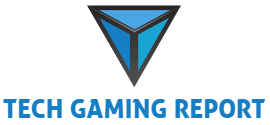
The use of the principle of DNA strands to store digital data has long been considered due to the immense density of information. One of the companies investigating this is CATALOG. The startup is now entering into a cooperation with mass storage specialist Seagate.
About three years ago, the startup took care of that. CATALOG caused a stir, because he had managed to publish the English edition of Wikipedia with the memory capacity of that time to store about 16 GB in synthetic DNA strands. However, the write took a long time because the data was only transferred at around 0.5 MB/s.
With Seagate, the DNA storage platform gets smaller
The company now announces that it will collaborate with hard drive manufacturer Seagate in the future. With their help, other problems of the new technology must first be addressed: the still large space and energy requirements for a DNA storage system and its costs.
The first-generation DNA platform, which served as a “proof of concept,” is currently about the size of an average kitchen, according to the company. The goal is to reduce the size by a factor of 1,000 as part of further development.

by Seagate”Lab technology on a chip‘ which can help reduce the volume of chemicals needed for storage and processing. The Seagate platform could mix tiny droplets of DNA in different reservoirs and perform specific computational functions through chemical reactions.
The collaboration will focus on using Seagate’s “lab-on-a-chip” technology to reduce the volume of chemicals needed for DNA-based storage and computation. Using the Seagate platform, tiny droplets of synthetic DNA can test chemistry at significantly smaller levels. These drops will be processed through dozens of repositories on the Seagate platform. DNA from individual deposits is mixed to produce chemical reactions for a variety of computing functions, including search and analysis, machine learning, and process optimization.
CATALOG
This new platform, which also requires less power, should provide new insights down the road to even more compact form factors for the desktop or Internet of Things.
The goals of the next-generation platform are to use significantly fewer chemicals, require less power, and operate almost anywhere, including in offices, on mid-ocean ships, and potentially in space.
CATALOG
Great expectations and a lot of theory
With immense data density and great longevity, synthetic DNA is a potential candidate for long-term archiving of large amounts of data. Founded in 2016 by scientists at the Massachusetts Institute of Technology, CATALOG once claimed it could theoretically store up to 200 exabytes (200 million terabytes) in 1 gram of DNA. However, the storage process is still complex, slow and expensive.
By adding more synthetic bases, artificial DNA could store even more data in the same space, US researchers reported earlier this year.

Introvert. Beer guru. Communicator. Travel fanatic. Web advocate. Certified alcohol geek. Tv buff. Subtly charming internet aficionado.
